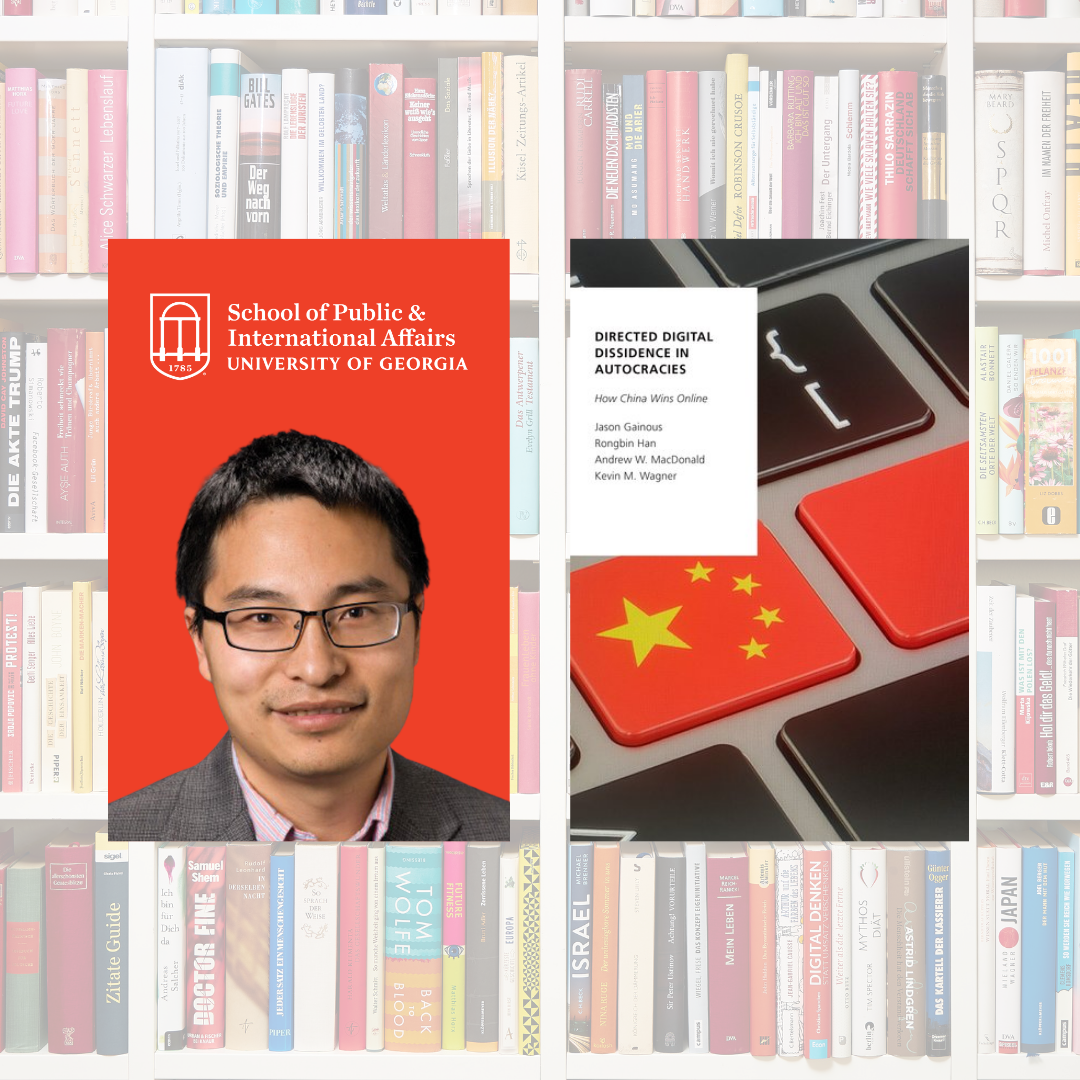Dr. Rongbin Han, Associate Professor of International Affairs and Faculty Fellow for the Center for International Trade and Security at UGA, co-authored a book entitled Directed Digital Dissidence: How China Wins Online, in which he and other researchers evaluate the extent to which China’s online presence influences its regime stability. Dr. Han further illuminates the scope of his book in his answers to the questions below.
What influenced you to research the relationship between the Internet and authoritarian regimes?
In the early days of the internet age, there was the optimism that the new technology will democratize and liberalize authoritarian regimes. In cases such as the Arab Spring, social media has indeed shown its potential to help overthrow entrenched autocracies. However, in China, we have observed the puzzling coexistence of an empowering internet and a resilient authoritarian regime. This puzzle has been driving my research. My first monograph Contesting Cyberspace in China tackles the puzzle and argues that a key explanation for this co-existence, in addition to the state’s capacity to control and adapt, as many have argued, is the pluralization of cyberspace, which empowers pro-regime voices as much as, if not more than, regime critics. In this new book, Directed Digital Dissidence in Autocracies, my coauthors and I shift our attention to the state and examines the agency of the state as a source of authoritarian resilience in the digital age. We argue that the central Chinese government successfully directs citizen dissent toward local governments, local officials, and other actors such as foreign governments and media. This information strategy helps discipline local state agents, allows venting of nationalist sentiments, while projecting a benevolent and positive image of the central government and the regime.
Can you explain the term “directed digital dissidence”?
We devise the concept of “directed digital dissidence” to capture the selective, adaptive, and manipulative nature of China’s online information strategy. China does tolerate certain level of critical information on selected issues, resulting in widespread digital dissidence, as one can easily observe in Chinese cyberspace. However, the critical online information flows are carefully managed and directed, targeting local governments, local officials, foreign governments, foreign media, and so forth, and away from the central government and top leaders.
Does this strategy protect centralized governments from citizen rebellion in the long run?
We believe the strategy does function to protect the central government and the authoritarian regime as a whole and maybe even enhance their legitimacy. It can also help defuse popular anti-regime mobilization. However, we do see there is a limit to which the strategy can work. For instance, our analysis of the Shanghai lockdown case during the COVID-19 pandemic shows that the strategy can be less effective when there are no credible deflections and state propaganda runs against the direct, visible, and widespread personal experiences.
Does online propaganda play a big role in directed digital dissidence.
Yes, we believe so. Directed digital dissidence is about directing criticism away from and project a positive and benevolent image of the central government, top leaders and the regime as a whole. Propaganda is crucial in this process. However, it is important to note that as an online information strategy, the state often rides with citizen activism. The strategy is not simply about scapegoating. As we mention in the book, the strategy is “a more interactive process in which agency is given to some online voices such that those making complaints in line with state goals feel a sense of empowerment.”
What are the main takeaways a reader can expect from your book and why is it important?
Our book contributes to the growing literature on authoritarian resilience in the digital age. We provide a powerful explanation by examining the agency of the state, revealing how authoritarian regimes, especially high-capacity ones such as China, employ the internet in advantageous ways. After reading it, one can have a better understanding of the intriguing relationship between new digital technologies, information control and manipulation, and authoritarian politics in general. Moreover, the book also offers a detailed account of the China case, especially how the information strategy works and what its potential limitations are in the Chinese context.






